The Fifteen Craziest College Classes Taught in America Today
NEWYou can now listen to Fox News articles!
So this is what all those hefty tuition payments are covering these days.
While a typical college education may consist of sitting in long lectures that start at 8 a.m., some universities have put a fresh spin on such time-worn traditions.
Here are some of the wildest and wackiest college courses offered across America.
Many now offer classes about pop culture icons, the importance of learning how to fail and when to “clap for credit.”
Here are some of the wildest and wackiest courses offered today or recently at U.S. institutions across our country.
Course descriptions are based on publicly available information on school websites.
1. Introduction to Surfing
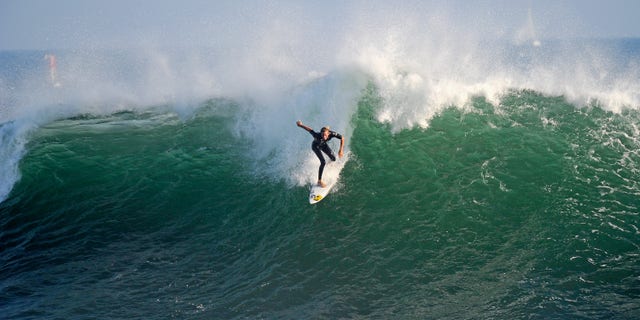
A surfer rides a high wave at The Wedge on Sept. 1, 2011, in Newport Beach, California. (Photo by Kevork Djansezian/Getty Images)
Students at Pepperdine University can take an introduction to surfing class right on the beach in Malibu, California.
The one-credit course conveys a general understanding of surfing and ocean safety. “Classes fill almost instantly when registration begins!” reads a course description. Also, students are told to “bring a towel and warm clothing.”
Just another perk, it seems, of attending college on the coast of sunny California.
RUSH LIMBAUGH, TIGER WOODS AMONG THE MOST SUCCESSFUL COLLEGE DROPOUTS OF OUR TIME
2. Nature of Society: Beyoncé and Intersectionality
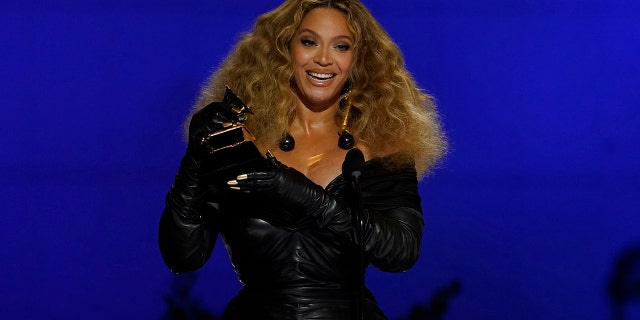
Beyoncé accepts the award for best R&B performance for “Black Parade” at the 63rd annual Grammy Awards at the Los Angeles Convention Center on Sunday, March 14, 2021. (AP Photo/Chris Pizzello)
Any class mentioning Beyoncé is bound to be a hit among today’s college kids.
For three credits, students at Texas Christian University are taught the characteristics of the Houston-born pop queen.
Open discussions in class also cover such bold topics as racism, classism and sexism.
3. Tree Climbing
This course taught at Cornell University in upstate New York is for the kid at heart — maybe even Tarzan himself.
The Outdoor Education Department at the Ithaca-based university offers this one-credit course.
It covers how to get up into any tree, how to move around — even how to climb to another tree.
4. Arguing with Judge Judy: Popular ‘Logic’ on TV Judge Shows
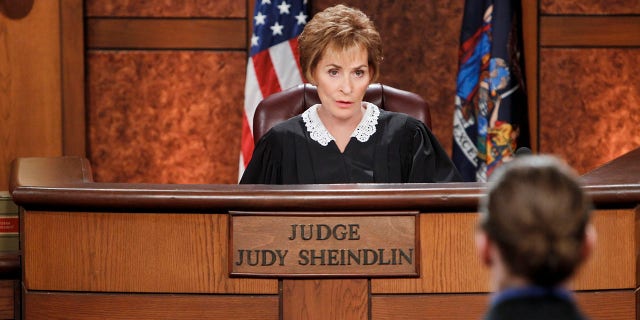
Episodic coverage of “Judge Judy” for the CBS special, which aired April 14, 2014. (Photo by Sonja Flemming/CBS via Getty Images)
First-year students at the University of California, Berkeley, take a deep dive into TV “judge” shows in this one-credit course.
Students specifically examine “Judge Judy” and “The People’s Court” — and discuss why certain practices in the courtroom are common. “Are these shows presenting a perversion of our legal system or a look into that system?” says a course description, in part.
“For example, when asked ‘Did you hit the plaintiff?’ respondents often say, ‘If I woulda hit him, he woulda been dead!’ This reply avoids answering ‘yes’ or ‘no’ …”
“A fascinating aspect of TV judge shows from a rhetorical point of view is the number of arguments made by litigants that are utterly illogical, or are perversions of standard logic, and yet are used over and over again,” the description also says.
“For example, when asked ‘Did you hit the plaintiff?’ respondents often say, ‘If I woulda hit him, he woulda been dead!’ This reply avoids answering ‘yes’ or ‘no’ … and offers a perverted form of the logical strategy called an ‘a fortiori’ argument …”
COLLEGE STUDENTS WEIGH IN ON THE STUDENT LOAN CRISIS AS BIDEN AGAIN EXTENDS PAYMENT PAUSE
5. Nip, Tuck, Perm, Pierce, Tattoo, Embalm: Adventures with Embodied Cultures
People can alter their bodies in more ways than one — and the inclination to do so may well be culturally influenced.
This eight-credit class taught at Alfred University in Alfred, N.Y., discusses how different cultures across the globe influence appearance changes, no matter how extreme those changes may be.
6. Harry Potter: Understanding Good & Evil

Emma Watson as Hermione Granger, Daniel Radcliffe as Harry Potter and Rupert Grint as Ron Weasley in the “Harry Potter” franchise. (Warner Bros.)
This first-year 4-credit seminar course taught at High Point University in High Point, N.C., examines the fine line between good and evil among historic figures — but with a swish-and-flick twist.
Through the lens of J.K. Rowling’s Wizarding World of Harry Potter, students at High Point University are challenged in this class with defining the discrepancy between the two forces.
7. Going Viral
Ever wonder how to go viral on the internet? This three-credit class for communications and media majors at Montclair State in Montclair, N.J., will explain exactly how.
“Our focus will be on the contemporary scene of technological innovations and how social media are transforming the way we do business, politics, entertainment and activism.”
“In this course we will explore media concepts and theories and contemporary viral phenomena,” the course description explains. “We will investigate the evolution of different media and the impact of emerging media on society. Our focus will be on the contemporary scene of technological innovations and how social media are transforming the way we do business, politics, entertainment and activism.”
HARVARD CRIMSON STUDENT NEWSPAPER SLAMMED FOR ‘JOURNALISTIC MALPRACTICE’ AFTER ISRAEL EDITORIAL
8. Dealing Tactfully with Difficult People
This extension seminar at UCLA (University of California, Los Angeles) teaches the critical skills needed to handle people who don’t make life easy for the rest of us.

A class offered at the UCLA Extension program instructs students on dealing with such behaviors as “verbal attacks and put-downs, complaining, thoughtlessness, manipulation” and more.
The management course discusses ways to build trust, recognize patterns of behavior and foster self-esteem in times of doubt.
The course description declares, “Participants learn specific strategies for dealing with behaviors such as verbal attacks and put-downs, complaining, thoughtlessness, manipulation, attention-seeking, excessive talking, withdrawal, rule-breaking, excuses and feigned helplessness.”
9. Cow to Cone

A pistachio and black raspberry ice cream cone is served at Garside’s Ice Cream in Saco, Maine, on Wednesday, July 7, 2010. (Photo by Shawn Patrick Ouellette/Portland Press Herald via Getty Images)
Learn the ins and outs of ice cream manufacturing at Penn State University. This one-of-a-kind lecture is a 129-year tradition at the university.
As the university’s College of Agricultural Science program explains, “There’s more than meets the eye, or the mouth for that matter. Every cone of ‘Peachy Paterno’ or cup of ‘Death by Chocolate’ begins with the cream provided by the cows at Penn State’s dairy barns only a short mile north of the Creamery Store.”
It adds, “Creamery Ice Cream represents the university’s agricultural roots, and remains today a symbol of Penn State pride. From the Cow to the Cone!”
10. Clap for Credit (aka Music 113)
A round of applause for this one!
The one-credit class — officially known as Music 113: Music in Performance — is offered at the University of Wisconsin, Madison. Students can take the class as many as three times.
“Usually students in the music department would use the captive audience to practice performing.”
It asks this of enrolled students: Show up to one 50-minute lecture each week, listen to a musical performance for each class — then clap when those performances conclude.
“Usually students in the music department use the captive audience to practice performing,” said a recent graduate of the university who took the course.
11. Failure
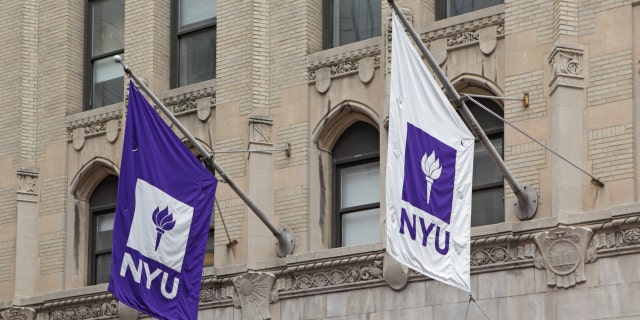
Purple and white flags fly outside of NYU in New York City, NY. (iStock)
Trying for a career in the arts often means learning how to fail.
A course called Topics: Failure — taught at the Clive Davis Institute at NYU’s Tisch School of the Arts — explores major failures among artists, as well as “memorable” pop culture moments.
It includes case studies on Britney Spears’ 2000s meltdown, Kanye West’s award-show speeches and William Hung’s “American Idol” 2004 audition (after which Simon Cowell famously commented, “You can’t sing, you can’t dance, so what do you want me to say?”).
“What is it exactly that we think we can learn from failure?”
For two credits, students in this course consider “failure as it relates to the contemporary popular arts,” notes the description. “What is it exactly that we think we can learn from failure? And more to the point, what does our amplified 21st century interest and obsession with failure say about us?”
12. Lady Gaga and the Sociology of the Fame
As music star Lady Gaga once said, “Doin’ it for the fame!”

Lady Gaga attends The 2019 Met Gala Celebrating Camp: Notes on Fashion at Metropolitan Museum of Art on May 06, 2019 in New York City. (Dimitrios Kambouris/Getty Images for The Met Museum/Vogue)
University of South Carolina students have the opportunity to explore the sociology of pop culture through the rise of music icon Lady Gaga.
The course aims to relate the roles of business, law, media, sexuality and fandom to the making of a modern superstar.
13. Introduction to World Puppetry
As part of the University of Connecticut’s plethora of puppet art courses, this class introduces students to puppetry production around the world.
Global puppet performances are studied for the visual artistry they offer — plus the performances’ social, political and religious contexts.
14. How ‘The Simpsons’ Saved American Literature

“The Simpsons” was named the best sitcom of all time by Rolling Stone. (FOX)
The longest-running scripted primetime series in American TV history has gotten its own three-credit college course.
CLICK HERE TO GET THE FOX NEWS APP
At Long Island’s Hofstra University, students can study how the cartoon series “The Simpsons” has parodied classic literature for 33 seasons. Common themes such as family values, heroes and role models and American ingenuity are also examined.
15. Serial Murder
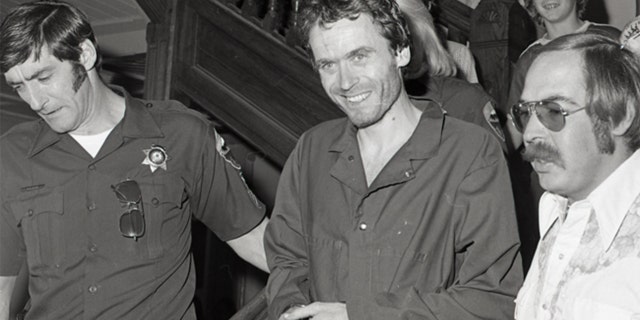
In this 1977 photo, serial killer Ted Bundy is escorted out of court in Pitkin County, Colo. (Glenwood Springs Post Independent via AP)
Why is the public so infatuated with serial murderers? High Point University — in High Point, N.C. — gives first-year students the upper hand in answering this question.
CLICK HERE TO SIGN UP FOR OUR LIFESTYLE NEWSLETTER
For four credits, students at this university study the origin of serial killers — including people such as Jeffrey Dahmer and Ted Bundy — and exactly what makes their gruesome acts so fascinating.
" Conservative News Daily does not always share or support the views and opinions expressed here; they are just those of the writer."

Now loading...